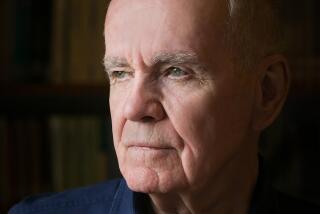Book review: ‘Moonlight Mile’ by Dennis Lehane
- Share via
For the last decade, Dennis Lehane has been resolute in interviews and appearances that Patrick Kenzie and Angela Gennaro, the popular private-eye team who starred in his first five books, weren’t returning any time soon. But like any smart author worth his or her salt, especially someone with the bestsellers “Mystic River” and “Shutter Island” under his belt, he left the door open for them to return if they so chose.
Now, to the delight of his longest-serving fans, Patrick and Angie have returned in “Moonlight Mile,” a sequel to Lehane’s 1998 bestseller (and basis for the 2007 film) “Gone, Baby, Gone.” They’ve grown in real time as parents to a little girl, Gabriella, and are worried about the same things on many Americans’ minds — mounting debt, decreased work, where to send their child to school.
But Patrick’s trigger temper hasn’t entirely calmed down. “You think you’re wearing that nice suit but all I see you wearing is class rage,” says Jeremy Dent, his employer at the investigative firm where Patrick freelances. Dent is explaining why there’s no prospect for a permanent job. Angie too has difficulty adjusting to the quiet life: “I was not put on this earth just to read ‘Goodnight, Moon’ three times a day and have fifteen-minute discussions about sippy cups.”
The surprise appearance of the aunt of Amanda McCready, the 4-year-old who vanished in “Gone, Baby, Gone,” acts as the proverbial red flag waved in front of a bull for both Patrick and Angie. Amanda, now 16, has gone missing again. Her mother, Helene, is mixed up with even more unsavory characters. The couple set aside old, lingering philosophical disagreements about returning Amanda to her mother to find her again — even though, as before, many forces would rather they did not.
After so long an absence, picking up recurring characters’ lives can veer dangerously close to a nostalgia trip for both reader and writer. This reader couldn’t help thinking back to her college years, knocked out by Patrick and Angie’s complex hues and their ability to navigate the murky class waters of Boston’s varying, violent strata. Despite the violence and the pain, Lehane’s early books stem from a younger, sharper voice.
Now, thanks to larger-scope works like “Mystic River” and especially “The Given Day,” revisiting Patrick and Angie is less evolution than reanimation. Their banter, always clever and still thus, is more on-the-nose, like a comedian who has become too familiar with his best jokes. The teen Amanda, as described by classmates and teachers, bears more resemblance to Stieg Larsson’s Lisbeth Salander than to a troubled American adolescent. Even the private-eye couple’s best friend, the blithe psychopath Bubba Rogowski, has duller edges this time out, not just because he’s Gabriella’s favorite uncle.
Such criticisms don’t detract from the entertainment value of “Moonlight Mile,” which in its best moments zooms along the express track without sacrificing the emotional punch of Lehane’s previous works. Amanda’s fate at the end of “Gone, Baby, Gone” raised many more questions than at the book’s start. Picking up her story after so many years offers a window into how much has changed around and for Patrick and Angie, while also demonstrating the inexorable consistency of human behavior at its worst.
Patrick, in particular, can’t help but get drawn into maelstroms that threaten to overwhelm everything, a realization he comes to, more or less, late in the book: “I realized, once and for all, that I love the things that chafe. The things that fill me with stress so total I can’t remember when a block of it didn’t rest on top of my heart. I love what, if broken, can’t be repaired. What, if lost, can’t be replaced.”
Still, “Moonlight Mile” is akin to that 10th-anniversary school reunion: old acquaintances to catch up with, old enemies to ignore or reevaluate, and lots of alcohol served up at the cash bar across the room. After the festivities end, it’s time to get on with the business of day-to-day adulthood — and for Lehane to continue the forward motion promised by his most recent, more ambitious works.
Weinman writes Dark Passages, which appears monthly at https://www.latimes.com/books, and blogs at https://www.sarahweinman.com.
More to Read
Sign up for our Book Club newsletter
Get the latest news, events and more from the Los Angeles Times Book Club, and help us get L.A. reading and talking.
You may occasionally receive promotional content from the Los Angeles Times.










